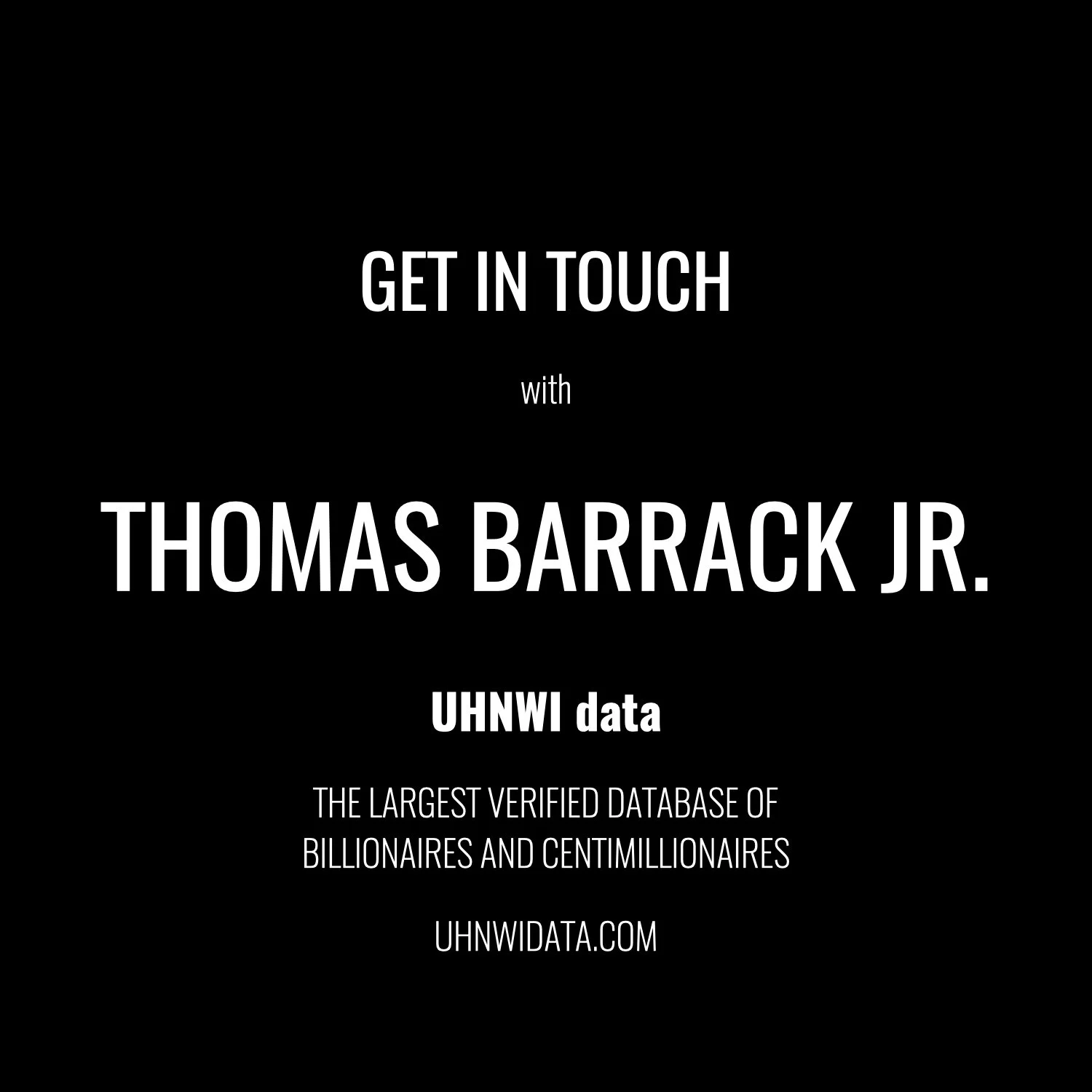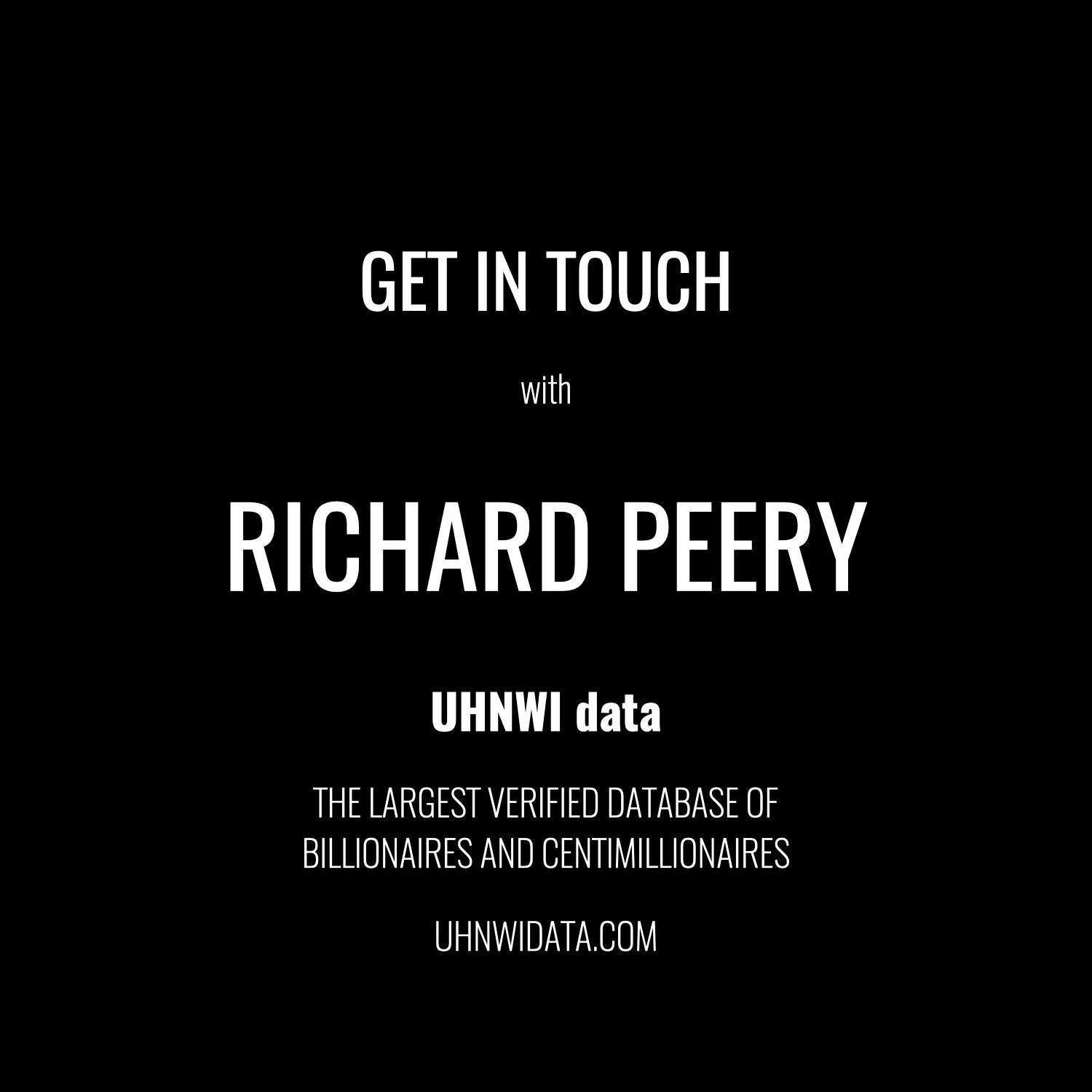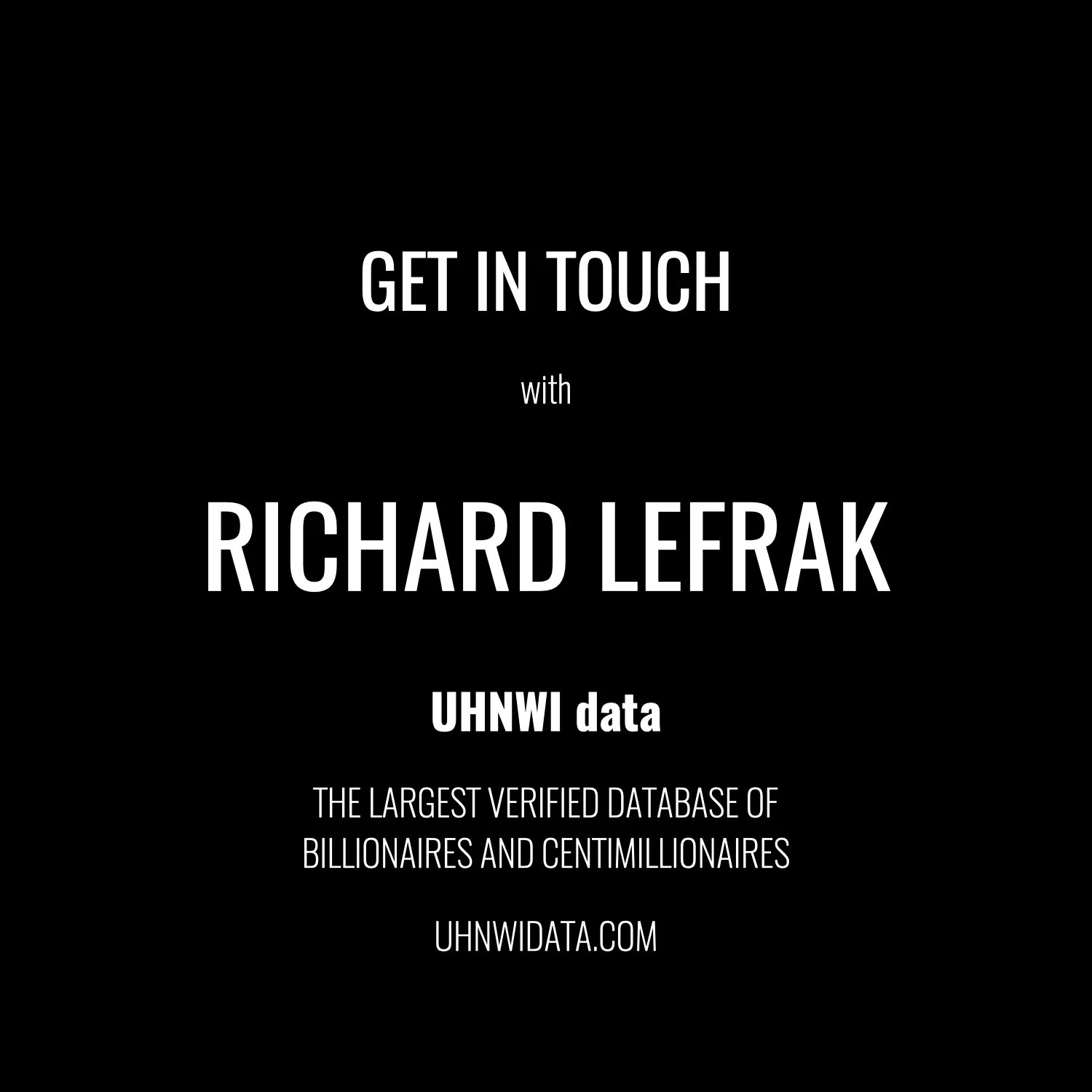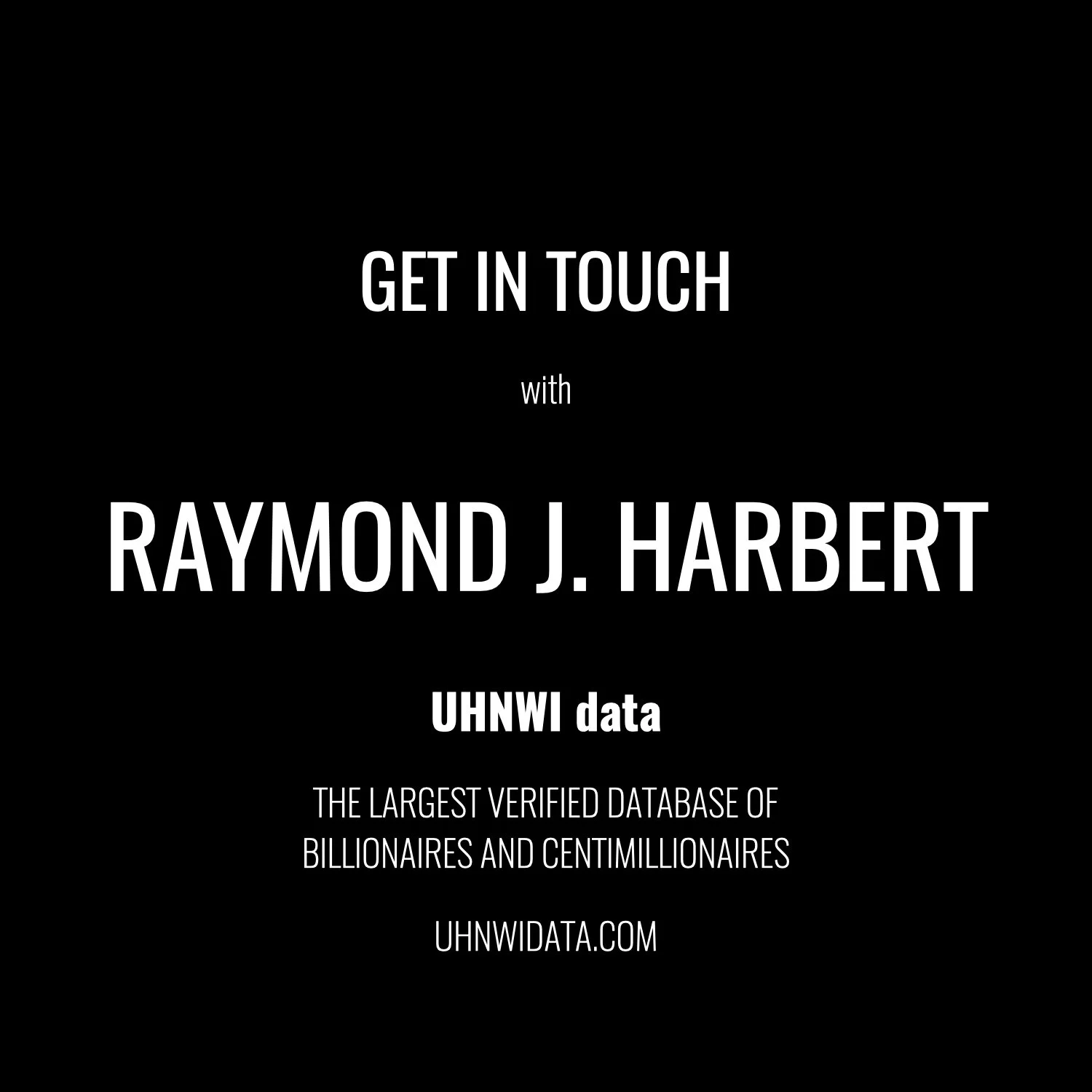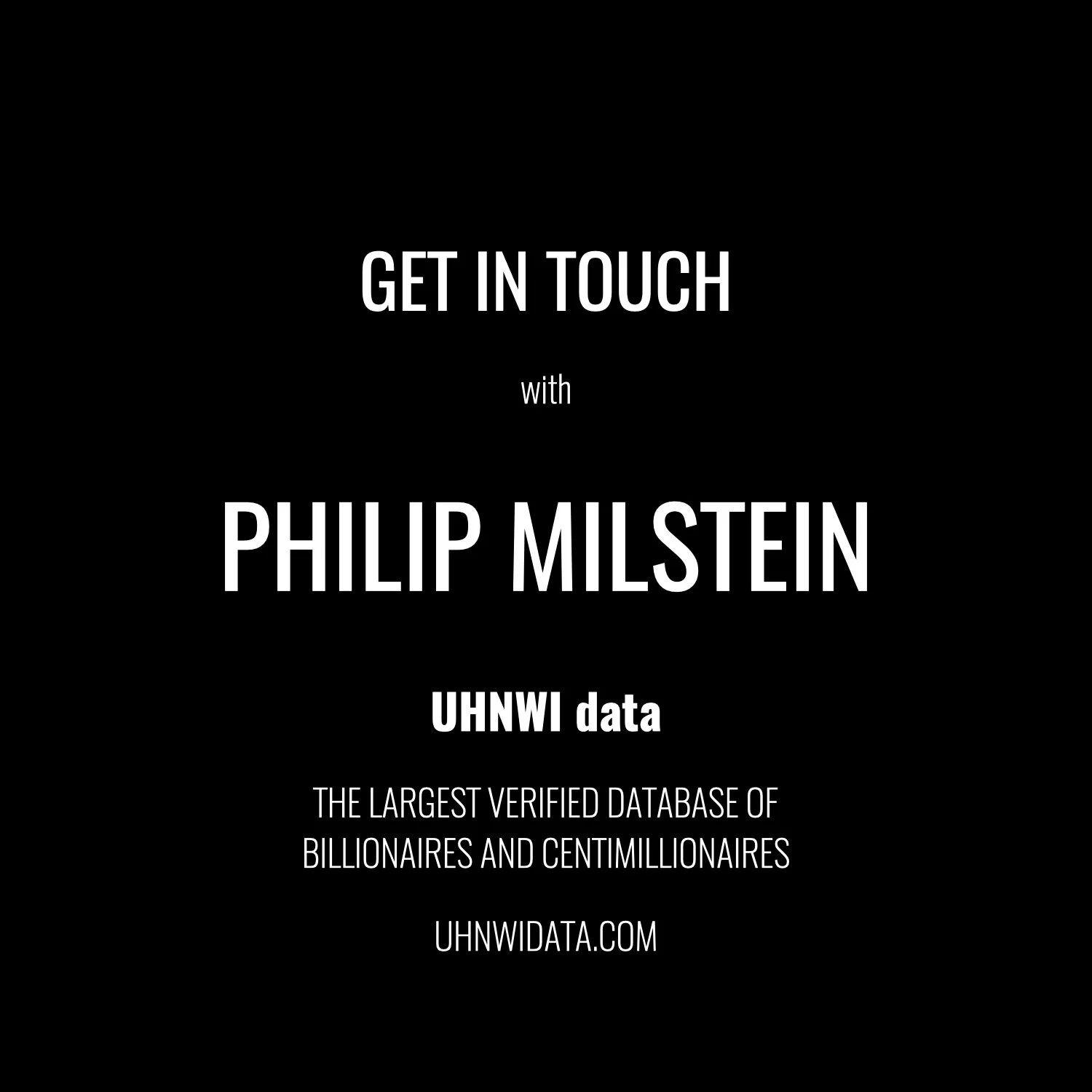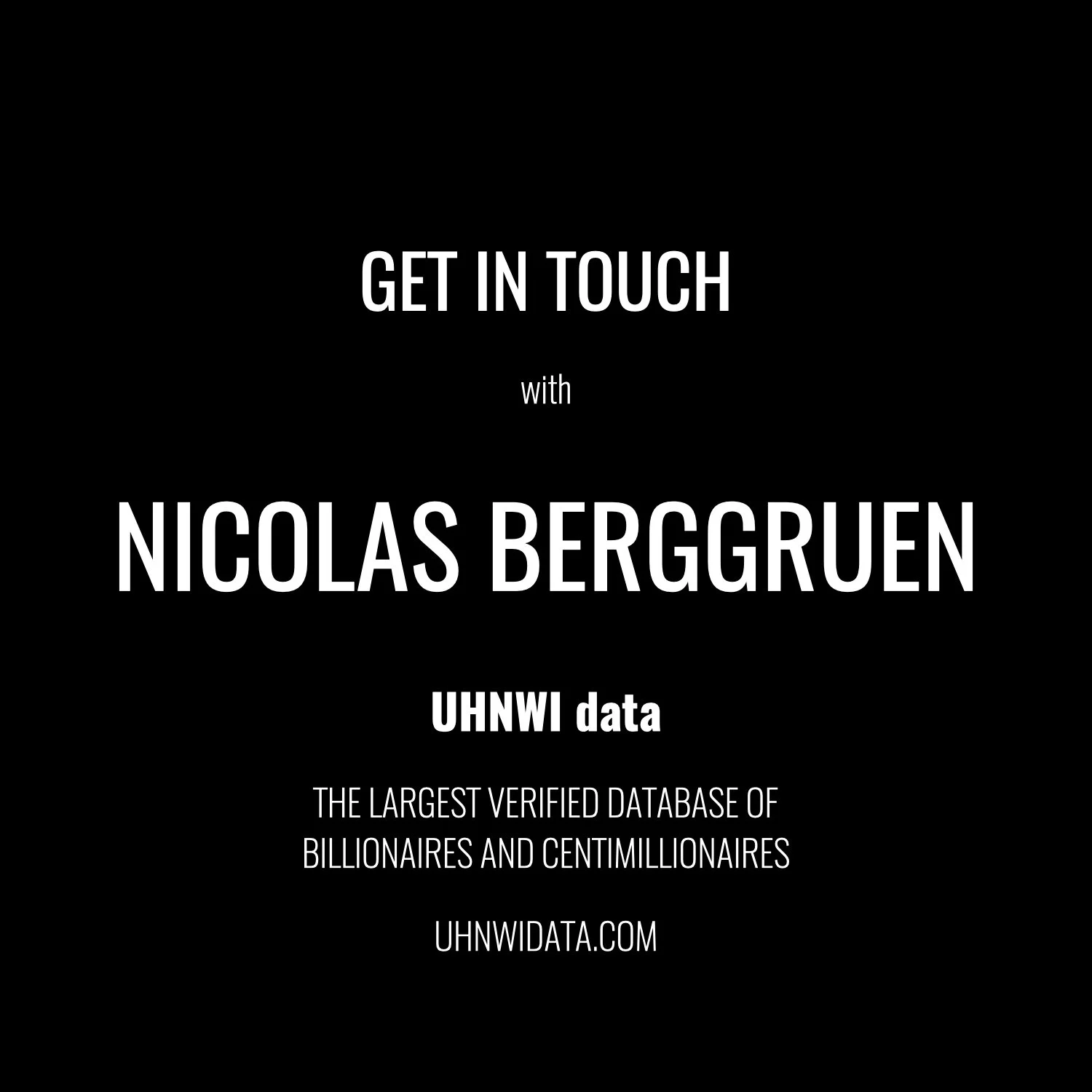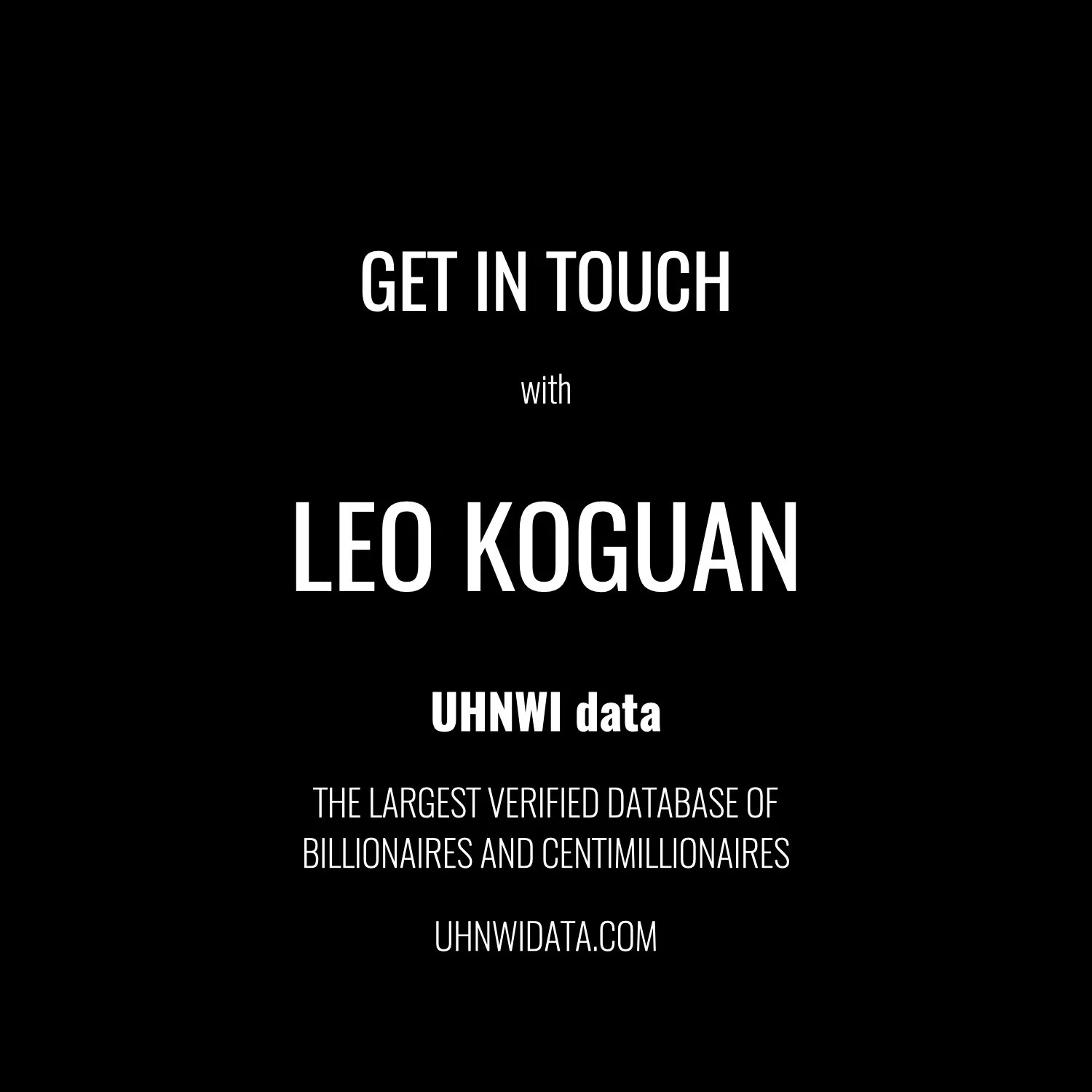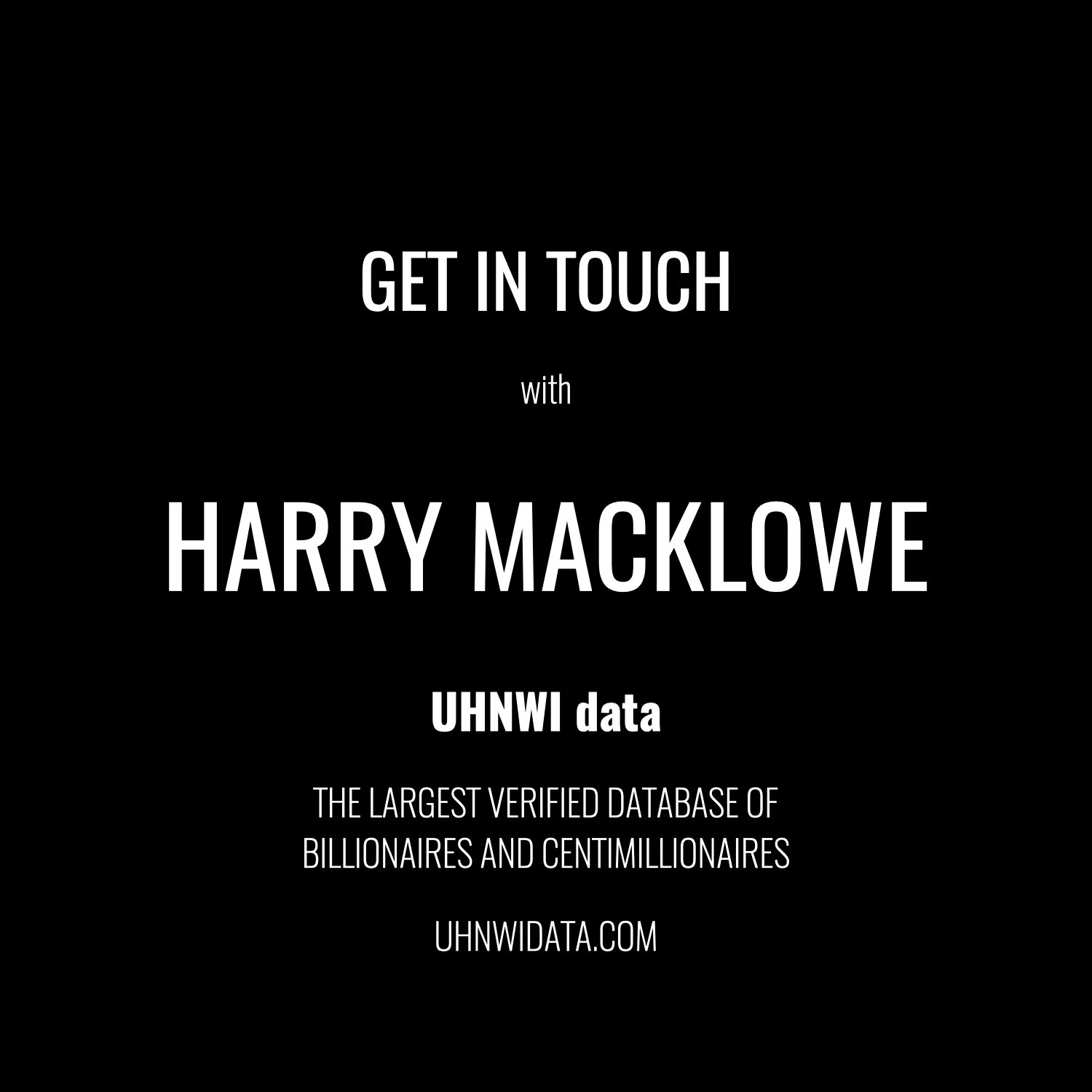Jeffrey Greene (born 1954) is an American real estate entrepreneur and investor whose fortune, estimated at $7.9 billion as of 2025, derives principally from commercial and residential property holdings alongside financial positions that profited from the collapse of the subprime mortgage market in 2008.[1][2] Originating from modest beginnings in Worcester, Massachusetts, Greene built his wealth starting in the 1970s through opportunistic real estate deals, including early apartment complex acquisitions funded by innovative financing, before achieving billionaire status via credit default swaps that yielded hundreds of millions as housing prices plummeted— a contrarian move rooted in his analysis of overleveraged lending and speculative bubbles rather than mere speculation.[3][4][5] A Democrat based in Palm Beach, Florida, he entered politics with a 2010 U.S. Senate primary challenge where he secured 31% of the vote, followed by a 2018 gubernatorial bid emphasizing economic reform, though both efforts ended in primary defeats amid scrutiny over his crisis-era gains and prior business disputes.[6][7] Greene's career exemplifies resilience in cyclical markets, having navigated 1990s downturns before capitalizing on distress, and he maintains active investments in hotels, retail, and distressed assets while advocating for prudent risk assessment in real estate amid ongoing commercial property challenges.[8][9]
Early Life and Education
Childhood and Family Background
Jeffrey Edward Greene was born on December 10, 1954, in Worcester, Massachusetts, to working-class Jewish parents.[10][8] His father operated a small business selling used textile machinery, which collapsed amid the industry's southward migration and broader economic shifts in New England's manufacturing sector during the mid-20th century.[11][12] Following the business failure, his father struggled financially, eventually taking miscellaneous jobs such as refilling vending machines after the family relocated.[8] Greene's mother served as a religious school teacher in Worcester and later worked as a waitress in Florida.[12][13][8]
Greene spent his early childhood in Worcester's working-class neighborhoods, including time on Old English Road, where his family's modest circumstances exposed him to economic precarity firsthand.[11] At age 13, he left Worcester to attend boarding high school, marking an early departure from his hometown environment.[11] Around age 15, in the late 1960s, Greene relocated with his parents and brother to the Boca Raton area in Florida, initially renting a studio apartment in the Century Village retirement community.[14] This move reflected the family's pursuit of better opportunities amid ongoing financial challenges, though it did not immediately alleviate hardships.[8][15]
His parents emphasized values of hard work, resilience, and self-reliance, shaped by their own experiences with economic disruption and modest means, which Greene later credited for influencing his entrepreneurial mindset.[12][15] The family's Jewish heritage also played a role in instilling community-oriented ethics, evident in his mother's teaching position.[10][13]
Academic and Early Professional Training
Greene graduated from Doherty Memorial High School in Worcester, Massachusetts, before pursuing higher education. He earned a bachelor's degree from Johns Hopkins University, funding his studies through multiple part-time jobs, including teaching religious school three days per week.[13] [1]
After completing his undergraduate degree, Greene worked for three years before enrolling at Harvard Business School, where he obtained a Master of Business Administration in 1979.[13] [16] He continued to self-finance his graduate education through various jobs, reflecting the economic self-reliance instilled by his family background.[17]
During his time at Harvard, Greene initiated his early professional involvement in real estate by purchasing a multifamily property near the university campus, an investment that served as practical training in property management and development. This hands-on experience laid the groundwork for his subsequent career, blending academic business principles with direct market engagement.[17] [16]
Business Career
Entry into Finance and Real Estate
Greene initiated his real estate investments during his time at Harvard Business School, where he purchased a three-family house in Somerville, Massachusetts, in 1977 to generate rental income while covering living and tuition expenses.[1][13][18] By leveraging rental proceeds and additional acquisitions, he expanded his holdings to 18 properties by his 1979 graduation, yielding enough cash flow to fully fund his $4,500 annual tuition without external loans.[11][19]
Post-graduation, Greene relocated to Los Angeles in 1980, shifting focus from residential rentals to commercial development, including the construction of luxury condominiums during the late 1980s amid Southern California's housing boom.[4] This period marked his entry into larger-scale real estate operations, where he financed projects through personal capital and early banking relationships, laying the groundwork for a diversified portfolio that later incorporated financial instruments like credit default swaps for hedging mortgage risks.[8] His approach emphasized contrarian buys during market soft spots, such as navigating the early 1990s downturn by acquiring undervalued assets.[4]
Greene's initial foray into finance intertwined with real estate through self-funded expansions and opportunistic debt structures, but he avoided heavy reliance on traditional Wall Street roles, instead building expertise in derivative instruments via independent trades starting in the mid-2000s.[20] By the early 2000s, his real estate holdings spanned multifamily units, custom homes, and commercial sites, generating a foundation for broader investment strategies that blended property development with financial market positions.[17]
Prediction of 2008 Housing Crisis and Profitable Bets
In the mid-2000s, Jeff Greene, a real estate investor with a portfolio valued at approximately $1 billion, identified vulnerabilities in the U.S. housing market, including widespread subprime lending, speculative overbuilding, and unsustainable debt levels among borrowers.[21] [8] He anticipated a sharp correction due to rising interest rates and declining home values, which would trigger defaults on mortgage-backed securities.[5] This foresight was informed by his direct experience in real estate development and observations of market excesses, such as empty condominiums in Florida and overleveraged buyers.[22]
To capitalize on his prediction and hedge his own real estate holdings, Greene pursued credit default swaps (CDS) on subprime mortgage-backed bonds starting in April 2006, at the housing market's peak.[8] [5] After initial rejections from banks wary of uncovered swaps—contracts insuring against bond defaults without owning the underlying assets—he secured agreements with Merrill Lynch and JPMorgan, becoming one of the first individual investors to execute such trades at scale.[5] [23] Greene invested roughly $50 million in these swaps, selecting specific bonds after extensive research into their underlying mortgages.[5] [24]
As the housing bubble burst in 2007–2008, with subprime defaults surging amid the broader financial crisis, the value of Greene's swaps escalated dramatically; the positions yielded a 1,400% return over 18 months by late 2007 and reached approximately $500 million by February 2008.[8] [5] Overall, these bets generated an estimated $800 million in profits for Greene, transforming his net worth and establishing him as a contrarian success amid widespread market losses.[25] [8] While critics later questioned the ethics of profiting from the downturn—particularly given its impact on Florida homeowners—Greene maintained the trades were a prudent hedge against his property exposures and a rational response to evident risks.[23] [21]
Expansion into Development and Investments Post-2008
Following the 2008 financial crisis, Greene deployed profits from his successful short positions—estimated at over $800 million—into acquiring distressed real estate and related securities at depressed valuations.[26] [8] He notably purchased subprime mortgage-backed securities at fractions of their face value, reversing his prior bearish stance in a contrarian bid for recovery upside.[27] [28]
Shifting focus to Florida after relocating there in 2007, Greene targeted opportunities in Palm Beach County, investing roughly $300 million across 25 properties by 2014.[14] His developments emphasized multifamily housing and mixed-use projects in West Palm Beach, including the Cameron Estates apartment complex—a 548-unit rental property built on a former Mazda dealership site acquired for approximately $6 million, despite its prior $60 million loan burden.[3] [29] Leasing began in August 2015, with about one-third of units occupied by early 2016 and full occupancy achieved subsequently, signaling strong post-recession demand.[30] [31]
Greene expanded into hospitality with acquisitions of two hotels in West Palm Beach and ownership of the Tideline Ocean Resort & Spa, a luxury property in adjacent Palm Beach.[32] His flagship development, One West Palm, entailed a $250 million investment in two 30-story towers at 550 North Quadrille Boulevard, encompassing 340,000 square feet of Class A office space, a 209-suite five-star hotel, 84 luxury condominiums or rentals, retail outlets, restaurants, a daycare center, fitness facilities with tennis courts, and public parks.[33] City approval came in January 2016, followed by groundbreaking within months; construction spanned from around 2019, with the project nearing completion by April 2025 amid selections for hotel operators and tenants.[34]
By 2022, Greene's holdings—predominantly South Florida apartment complexes—exceeded $5 billion in value, underscoring a strategy of value-add redevelopment in undervalued markets to attract employment growth and capitalize on regional population inflows.[20]
Recent Ventures and Market Predictions
In the years following his 2018 gubernatorial campaign, Greene expanded his hospitality portfolio by acquiring the 100-room Opal Grand Oceanfront Resort & Spa in Boynton Beach, Florida, for $19 million on June 26, 2020, marking his entry into hotel management amid recovering post-pandemic tourism.[35] He also diversified into agriculture through a December 15, 2021, investment in Zeste Farms, a vertical farming company focused on sustainable produce cultivation.[36] By 2024, Greene maintained significant real estate holdings, including approximately 3,500 apartment units in Los Angeles and three commercial buildings in downtown Manhattan, alongside equities and other assets.[37]
Greene's portfolio faced market headwinds in the mid-2020s, prompting the sale of a historic Palm Beach post office building for $28 million to a company affiliated with The Breakers resort on December 26, 2024.[38] Concurrently, he expressed regret over constructing his 50,000-square-foot "Palazzo di Amore" estate in Beverly Hills, California, citing a real estate slowdown; as of October 20, 2025, he planned to relist the property for $129 million, reduced from an initial $195 million asking price.[39]
Regarding market outlooks, Greene forecasted in September 2023 that the commercial real estate sector was only in the "first inning" of a broader correction, driven by remote work trends and overleveraged properties, with spillover risks to residential markets.[9] By July 2025, he shifted to a more optimistic residential housing prediction, anticipating a surge in home prices once interest rates decline, fueled by pent-up demand, limited supply, and potential refinancing waves that could trigger a "reset" via increased listings from homeowners trading up.[40] Greene attributed upward pressure to chronic underbuilding since the 2008 crisis, demographic shifts, and insufficient immigration to bolster construction labor, while cautioning about U.S. fiscal debt risks exacerbating affordability issues.[41] These views align with his historical contrarian approach but contrast with bearish analyses emphasizing persistent high rates and inventory shortages.[37]
Political Activities
2010 U.S. Senate Campaign
Jeff Greene, a Palm Beach-based real estate billionaire, entered the Democratic primary for the U.S. Senate seat in Florida on April 30, 2010, registering his campaign committee with the Federal Election Commission that day.[42] His candidacy challenged incumbent Representative Kendrick Meek, the early frontrunner backed by Democratic establishment figures including former President Bill Clinton and President Barack Obama.[43] Greene, a political novice, positioned himself as a self-made outsider who had risen from modest beginnings to amass wealth by anticipating the 2008 housing market collapse through credit default swaps, emphasizing his independence from Washington insiders and special interests.[44]
Greene heavily self-financed the campaign, contributing nearly all of the $23.8 million raised, which funded an aggressive advertising blitz targeting Meek's record and extending attacks into the general election matchup against Republican Marco Rubio and independent Charlie Crist.[45] His strategy highlighted economic reform, drawing on his business experience to advocate for Wall Street accountability while portraying Meek as beholden to lobbyists; however, Greene faced scrutiny over his crisis-era profits, with critics alleging he profited from widespread foreclosures affecting Florida homeowners.[43] Despite the spending—among the highest for a self-funded primary challenger that cycle—Greene struggled to consolidate Democratic support, as Meek maintained advantages in party infrastructure and voter recognition.[46]
In the August 24, 2010, Democratic primary, Greene captured 31.13% of the vote (283,370 votes), finishing second to Meek's 57.44% (522,942 votes), with the remainder going to minor candidates.[47] The lopsided result ended Greene's bid, as Meek advanced to the general election, which Rubio ultimately won. Greene pledged post-primary support for the Democratic nominee but did not endorse Meek amid lingering primary tensions.[43] The campaign underscored the limits of personal wealth in overcoming establishment preferences in a competitive primary, with Greene's expenditure yielding limited traction among core Democratic voters.[48]
2018 Florida Gubernatorial Campaign
Greene, a Palm Beach billionaire real estate investor, filed paperwork to run for the Democratic nomination for Florida governor on June 4, 2018, entering the race late in the primary cycle.[7] He qualified for the ballot on June 20, 2018, by submitting the required $6,945 filing fee alongside his wife and children.[49] Greene positioned his campaign around his self-made business success, including his prescient short-selling of subprime mortgages ahead of the 2008 financial crisis, arguing this experience equipped him to tackle economic challenges like housing affordability and job creation for working-class Floridians.[50] He emphasized self-funding his bid—pouring in millions personally—to provide Democrats the financial firepower needed to compete against better-resourced Republicans in the general election, criticizing other candidates for lacking comparable resources.[51]
The campaign highlighted policy priorities drawn from Greene's real estate background, including expanding affordable housing through incentives for development and regulatory reforms to increase supply amid Florida's post-recession boom.[52] On education, Greene advocated boosting funding for public schools and teacher pay while opposing voucher expansions that he viewed as diverting resources from underfunded districts.[52] Environmentally, he addressed algal blooms linked to Lake Okeechobee discharges, calling for infrastructure investments like reservoir construction and stricter nutrient pollution controls from agriculture.[53] Following the February 2018 Parkland school shooting, Greene supported measures such as universal background checks, raising the minimum age for rifle purchases to 21, and banning bump stocks, while expressing skepticism toward arming teachers.[52] He also critiqued high-speed rail projects like Brightline for inadequate safety features and eminent domain practices.[53]
Greene's late entry disrupted the field, briefly surging to third in polls by mid-July 2018 through aggressive advertising that siphoned support from former Miami Mayor Philip Levine.[54] However, his bid faced scrutiny over past business disputes, including lawsuits and liens totaling millions from developers and contractors alleging nonpayment or breach of contracts in Palm Beach County projects.[55] Additional controversy arose from campaign flyers depicting Greene alongside black Democratic officials, which some recipients interpreted as implying endorsements not explicitly given, prompting criticism from rivals and the Florida Democratic Party for misleading tactics.[56] A financial disclosure also revealed Greene held approximately $27 million in Puerto Rico bonds amid the island's debt crisis, raising questions about conflicts with his progressive economic rhetoric, though his campaign maintained the holdings were passive investments.[57]
In the August 28, 2018, Democratic primary, Greene finished fourth among six candidates, behind winner Andrew Gillum, Gwen Graham, and Philip Levine, capturing roughly 10 percent of the vote.[58] He canceled a planned election-night watch party, opting to view results privately with family, and subsequently pledged full support to Gillum in the general election against Republican Ron DeSantis.[59][60]
Evolving Political Views and Public Commentary
Greene, raised in Massachusetts with longstanding Democratic leanings, has consistently prioritized policies promoting opportunities through education, healthcare, and affordable housing, viewing the Democratic Party as more attuned to these issues than Republicans.[61] He has, however, voted for Republican candidates on occasion and expressed appreciation for the party's economic principles, indicating a pragmatic flexibility beyond partisan lines.[61]
After Donald Trump's 2016 presidential victory, Greene—who had supported and voted for Hillary Clinton—publicly endorsed the outcome, declaring himself "behind him 100% as we all should be" and calling on Democrats to rally behind Trump in contrast to Republican resistance during Barack Obama's tenure.[62] He praised Trump's potential to govern effectively with "fresh eyes" and described him as capable of forming an "inclusive government," while expressing reservations about the tolerability of Trump's campaign rhetoric toward Muslims and Mexicans.[62]
In his 2018 Democratic primary campaign for Florida governor, Greene sought to distance himself from this earlier praise by emphasizing a heated personal exchange with Trump at Mar-a-Lago, which he featured in advertisements as evidence of standing up to the president.[63][64] Rivals, including Philip Levine, highlighted the 2016 comments to question his party loyalty, prompting Greene to assert that "Donald Trump can't stand me."[65]
Greene remained a registered Democrat and uninvolved in the 2024 presidential race, offering no support for Trump despite their shared Palm Beach residency.[61] Following Trump's reelection on November 5, 2024, he voiced optimism for unity and economic growth, stating, "Donald Trump's the president. Let's just hope everyone comes together and works together," while critiquing both parties for exacerbating the national debt through unchecked spending.[61] He has not met Kamala Harris or Joe Biden personally, underscoring his detachment from recent Democratic leadership.[61]
This pattern illustrates Greene's political commentary as increasingly nonpartisan, favoring post-election cooperation and fiscal restraint over ideological rigidity, even as he retains Democratic affiliation.[62][61]
Philanthropic Efforts
Founding of Educational Institutions
In 2016, Jeff Greene and his wife, Mei Sze Greene, established The Greene School, a private nonprofit institution in West Palm Beach, Florida, dedicated to advanced education for high-potential students from pre-kindergarten through higher grades.[1][66] The initiative stemmed from the Greenes' vision to foster academic excellence, leadership, and innovation amid evolving global economic and technological challenges, as articulated by Jeff Greene in public discussions on education reform.[67]
The school originated on a 1.8-acre site acquired by Greene in 2014 for $1.9 million, which was previously occupied by a Mazda dealership and subsequently renovated for educational use.[68] Initial enrollment covered pre-K through sixth grade with around 80 students, supported by tuition ranging from $20,000 to $27,000 per year, supplemented by financial aid funded directly by Greene to ensure accessibility without reliance on external fundraisers.[69] By 2022, the institution had grown to over 100 students and expanded to include ninth grade, with plans for a full K-12 program emphasizing rigorous academics, athletics, arts, and college preparation.[1][70]
Greene personally invested more than $20 million in the school's founding and ongoing operations, positioning it as a model for hands-on, investor-driven educational innovation rather than traditional public funding models.[1][66] No additional educational institutions have been founded by Greene, with philanthropic efforts in this domain centered on The Greene School's development and sustainability.[1]
Broader Community and Policy Initiatives
Greene established The Greene Institute, a nonprofit organization dedicated to addressing economic inequity through policy discussions and collaborative initiatives.[15] The institute hosts annual conferences, such as the "Managing the Disruption" series starting in 2017, which convenes leaders from business, academia, and government to examine technology's effects on employment and propose adaptive strategies for affected communities.[71][72] These events, held in Palm Beach, Florida, have featured analyses of automation's role in job displacement, with a 2017 Ball State University study cited indicating an 18% growth in U.S. manufacturing output alongside workforce reductions.[73]
The institute also organizes the "Closing the Gap" conference to foster solutions for income disparities, emphasizing practical policy recommendations over ideological approaches.[17] Greene serves as president and chief executive officer of the organization, which operates as a platform for evidence-based dialogues on economic challenges facing Florida and broader U.S. communities.[74]
In addition to policy-focused work, Greene and his wife, Mei Sze Chan, have supported Jewish community initiatives in Palm Beach County. They hosted the Jewish Federation of Palm Beach County's "Night of Philanthropy" event at their residence on January 11, 2018, attended by approximately 100 guests to advance local charitable efforts.[75] In March 2023, the couple organized an event for Birthright Israel Foundation, highlighting the program's impact on young Jewish adults through funded trips to Israel.[76]
Greene signed The Giving Pledge in 2010, committing to donate the majority of his wealth to philanthropic causes during his lifetime or in his will, with a focus on improving opportunities in Florida and nationally.[77][78] This pledge aligns with his broader emphasis on community development, including unspecified support for arts and local Florida programs.[15]
Personal Life
Family and Parenting Philosophy
Jeff Greene married Mei Sze Chan on September 29, 2007, at their Beverly Hills estate, with Rabbi David Baron officiating the ceremony.[19] The couple has three sons, whom Greene has described as central to his family life.[2] Together, Greene and his wife signed the Giving Pledge in 2013, committing to donate the majority of their wealth to philanthropic causes, reflecting a family-oriented approach to wealth stewardship.[78]
Greene's parenting philosophy emphasizes fostering independence and resilience in his children despite their affluent background, viewing excessive inheritance as a potential hindrance to personal growth. In a 2025 interview, he stated that his sons must be "on their own" to acquire luxury items such as jets, yachts, or mansions, arguing that parents who have amassed significant wealth often struggle with the balance of providing security without breeding entitlement.[2] He advocates for a "tough balancing act" where children learn the value of effort and self-reliance, rather than relying on unearned privileges, to prepare them for real-world challenges.[79]
This approach aligns with Greene's broader views on education as a tool for instilling problem-solving skills and adaptability, influenced by his experiences as a parent dissatisfied with traditional schooling options. He founded the Greene School in Palm Beach in 2016, investing over $20 million to create a hands-on curriculum focused on critical thinking, decision-making, and preparing students for technological disruptions like widespread job automation.[1][67] Greene has cited his parental frustrations with public education systems as a motivator, aiming to model an environment that equips children—including his own—with practical skills over rote learning.[80]
Residences and Lifestyle Choices
Jeff Greene primarily resides in an oceanfront estate in Palm Beach, Florida, adjacent to Mar-a-Lago, where he lives with his wife, Mei Sze, and their three sons.[3] In January 2021, local authorities granted initial approval for expansions to this landmark property despite neighborhood concerns over its scale and impact.[81] He also owns Palazzo di Amore, a 53,000-square-foot mega-mansion in Beverly Hills, California, purchased in 2007 for $35 million with additional tens of millions spent on completion, totaling an estimated $80–90 million investment; Greene has described it as a "terrible deal" amid a luxury market slowdown and plans to relist it for $129 million after a prior unsuccessful $195 million asking price.[39][82]
Greene's lifestyle emphasizes balance, with a routine of 50–60 hours of work per week, daily tennis sessions five days a week, family school drop-offs, and trips with friends, rejecting retirement in favor of ongoing professional challenges over leisure pursuits like golf.[2] In parenting, he adheres to a philosophy of withholding luxury inheritance from his children, stating they will not receive jets, yachts, or mansions and must earn such assets themselves to foster meaningful lives focused on helping others rather than accumulating wealth; this aligns with his 2010 commitment to The Giving Pledge to donate the majority of his fortune to philanthropy.[2] Previously, during his 2010 U.S. Senate campaign, Greene owned the 145-foot megayacht Summerwind, which drew scrutiny for hosting figures like Mike Tyson and a voyage to Cuba, though no current yacht ownership is documented.[83][84]
Controversies and Criticisms
Legal Disputes in Business
Jeff Greene has faced numerous legal disputes with contractors, property managers, and municipalities over his real estate development and management activities. Court records indicate that since his 2010 U.S. Senate campaign, at least 14 contractors and companies have filed lawsuits and liens totaling over $1.2 million against him or his entities, primarily in Palm Beach County, with most resolved through settlements.[55]
In property management, Greene pursued arbitration in 2007 against Craig Tice of LB Property Management, alleging breach of contract, emotional distress, and mismanagement of funds including a $600,000 mortgage shortfall at California properties. The arbitrator dismissed Greene's claims in 2008, finding no evidence of fraud after Greene's required 90-day records review. Greene settled the ensuing libel suit by Tice for $115,000 just before a June 2007 trial and paid an additional $7,584 in fees by April 2008, releasing all claims without issuing a required apology.[85]
Specific contractor disputes include three 2014 liens by RJS Construction totaling $143,770 for work on Greene's Palm Beach mansion, purchased in 2009 for $24 million, which were settled. A $985,000 dispute involved at least 10 firms over unapproved remodeling at the same property, also settled confidentially. Transcrete Services filed a $29,500 lien for flooring at The Greene School, resolved as a misunderstanding with full payment.[55]
More recently, in the One West Palm mixed-use project—a 30-story twin-tower development at 550 S. Quadrille Blvd. in West Palm Beach started in late 2018—general contractor Kast Construction sued Greene's entity on June 25, 2024, in Palm Beach County Circuit Court for breach of contract, claiming over $4 million owed, including $2.4 million in delay fees as the timeline exceeded 36 months due to Greene's design changes, withheld approvals, and unresolved subcontractor issues. Greene terminated Kast, describing the project as a "mess," hired Bluewater Builders, and countersued in September 2024, alleging overcharges, mismanagement, and poor workmanship that contributed to delays pushing completion beyond the original 2021 target.[86][87]
In October 2025, Greene sued the City of West Palm Beach to compel final site plan approval for a twin-tower luxury condo project at 2175 N. Flagler Drive in the Northwood District, initially approved by the planning board two years earlier but stalled by city inaction, which Greene attributes to his opposition to a separate land sale to a rival developer. The suit seeks a judicial order forcing approval.[88]
Campaign Scandals and Personal Allegations
During his 2018 Democratic primary campaign for Florida governor, a 2013 Palm Beach police report alleging a physical altercation involving Jeff Greene resurfaced on August 9, 2018, via CBS Miami. The report, filed on January 18, 2013, stemmed from an incident on December 28, 2012, at Greene's Omphoy Ocean Resort in West Palm Beach, where former cocktail waitress Lisa Ann Thomas claimed Greene smacked her arm to get her attention amid loud music, offending her enough to resign and seek documentation at her attorney's urging.[89] [90] Thomas reported no injuries, no intent to harm by Greene, and no fighting words, declining to press charges. Greene's campaign described the interaction as a mere tap on the arm to request lower music volume while dining with family, emphasizing the absence of harm or malice, with no subsequent lawsuit or settlement recorded.[89] The allegation prompted Florida National Organization for Women president Terry Sanders to demand Greene's withdrawal from the race on August 10, 2018, attributing it to a "power imbalance" inherent to his billionaire status, though his campaign countered that the call reflected political favoritism toward rival Gwen Graham.[90] No criminal charges were ever filed, and police closed the matter without further action.[89]
Greene faced criticism for campaign materials distributed in August 2018 that opponents deemed misleading, including flyers portraying him alongside prominent Black Democratic figures and implying Palm Beach County Democratic Party backing, despite the party's policy against primary endorsements. Sponsored in fine print by the Florida Defense Fund—a political action committee linked to Greene—the flyers drew accusations of fraud from figures like state Sen. Bobby Powell, who stated only Andrew Gillum had permission to use his image, and local activist Ethel Watson, who refused distribution.[91] Greene's campaign maintained the materials did not claim explicit endorsements and complied with disclosure rules, with an elections law expert describing them as "borderline" but legally permissible.[91]
Opponents and media highlighted Greene's history of business litigation during the campaign, portraying it as evidence of litigiousness conflicting with his populist messaging. Since 2010, Greene had faced at least 15 lawsuits and liens in Palm Beach and Miami-Dade counties, primarily from contractors over unpaid bills totaling over $1.2 million, including a $143,770 lien from RJS Construction. Rival Philip Levine likened Greene's approach to Donald Trump's, while outlets like Politico and the Tampa Bay Times amplified contractor complaints to challenge his self-image as a defender of the "little guy."[55] Greene had previously settled libel suits against media for his 2010 Senate run, including a seven-figure resolution with the Tampa Bay Times in 2016 over coverage of his business practices.[55]
Personal rumors from Greene's past also reemerged, prompting public denials on July 25, 2018. Allegations of cocaine-fueled parties on his yacht, Summerwind, originated from a 2006 account by former stewardess Sharyn Peach, but Greene dismissed them as "ridiculous," providing her affidavit recanting involvement and stating he tried cocaine once in his youth but abstained thereafter.[92] He acknowledged a brief acquaintance with Mike Tyson from about 15 years prior, including a boat outing, but clarified no partying occurred and that he and his wife funded Tyson's drug rehabilitation, as Tyson confirmed.[92]
Greene's May 31, 2018, financial disclosure revealed potential holdings of $26.8 million in Puerto Rico Commonwealth Public Improvement bonds amid the island's debt crisis, raising questions of hypocrisy given his expertise in distressed debt and outreach to Florida's Puerto Rican community post-Hurricane Maria. Critics, including advocates from the Center for Popular Democracy, argued the investments—part of Puerto Rico's $70 billion default—undermined his narrative against predatory financiers, though Greene did not directly address vulture fund criticisms in campaign statements.


